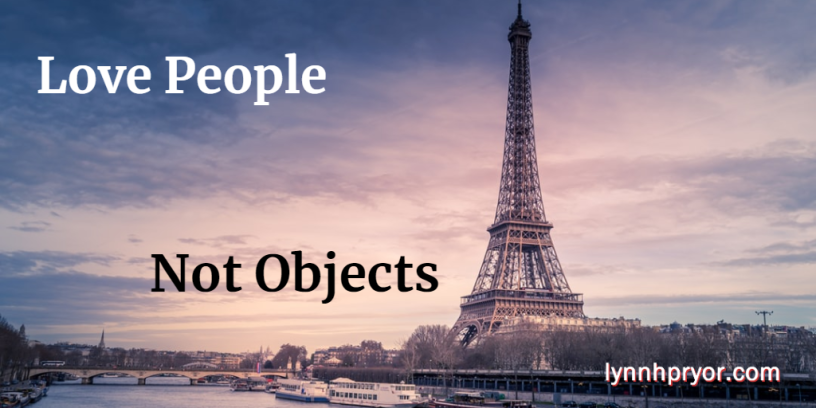Love People, Not Objects

I love a good chimichanga—but not enough to marry it.
Apparently, not everyone would agree with me. Why not marry it?
It’s called Objectum Sexuality (OS), a term for people who so love an object that they are even sexually attracted to it.
My intent is not to make fun of these women—as bizarre as their behavior is. I believe their behavior is symptomatic of deep-seated psychological and relationship issues. Yet I also see these women as taking to the nth degree an attitude we have all exhibited at one time or another.
Our love for things.
- The person fawns over a car like a parent with a young child.
- The person hesitates to loan or share something because she doesn’t want it damaged or soiled.
You’ve probably heard the old adage: Love people. not things. Use things, not people. We personalize objects (ever named your car?), and we objectify people. We give “life” to objects and we take life from others by making them objects for our own use and gain. The ways we treat both objects and people come down to the same reason: they are all to serve me—serve my needs and my self-interests.
Let’s see the worth in people—not the worth we give them because of their ability to meet our needs, but the worth God gives them.
 Consider the worth you have before God:
Consider the worth you have before God:
- God created you in His image (Gen. 1:26-27).
- God, who oversees the entire universe with its countless stars and galaxies, knows you deeply and intimately (Ps. 139:13-16).
- God seeks to fill your life with His goodness and abundance (John 10:10).
- God loves you deeply in spite of your sin and rebellion (Rom. 5:8).
- God gives you every spiritual blessing in Christ (Eph. 1:3).
- God desires to do great things in you and through you (Eph. 2:10).
You know that person you might be tempted to befriend only so he might serve your purposes? God sees in him the same worth and value He sees in you.
When we see people with this God-given worth and value, we can avoid a lot of problems in relationships. We can avoid a lot of sin.
Take King David, for example. One of the best-known stories of his life was the adultery he committed with Bathsheba followed by the murder of her husband. We usually highlight his sins of adultery and murder, but consider what lay behind those grievous acts.
He saw them as objects for his own purposes.
There was a whole lot of heartache and pain—not to mention death!—that could’ve been avoided had David seen both Bathsheba and Uriah in a different light.
Let’s see people as God sees them: deeply loved and deeply valued. “Dear friends, since God so loved us, we also ought to love one another” (1 John 4:11).
Subscribe to this blog at the top of the page! And encourage others by sharing this post.
For a printable version: click here.
 post supports the study “Uncomplicated Relationships” in
post supports the study “Uncomplicated Relationships” in 




